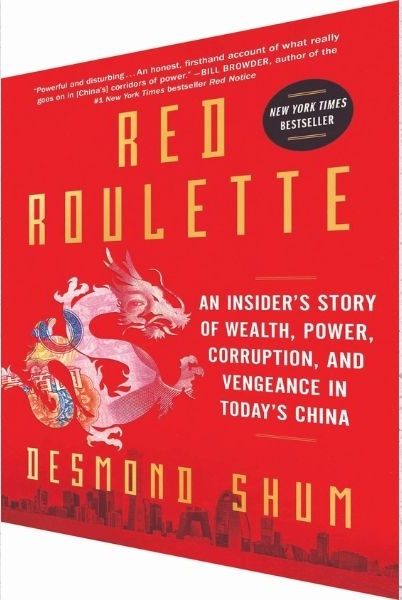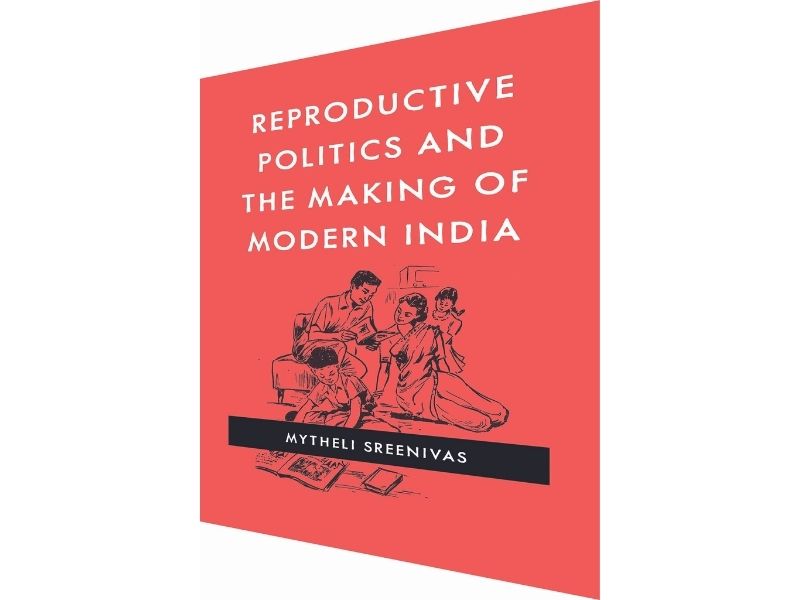
Red Roulette
by Desmond Shum
Published by Simon & Schuster
Rs.2000
Pages 310
-Dilip Thakore
There’s no shortage of admirers of the Red China development model of socio-economic growth in India and world over. Admittedly, by any yardstick the dizzying growth of our unfriendly neighbour, the People’s Republic of China (PRC) — with whom we share a 3,488 km and as yet unsettled border, God help us, in the north and north-east — is impressive. As recently as 1990, the annual GDP of the world’s two most populous countries was almost on a par. According to reputed economist-author Shankkar Aiyar, in that year China’s GDP was $390 billion, India’s $320 billion.
At that time the sweeping liberal economic reforms introduced by Chinese Communist Party (CCP) secretary-general Deng Xiaoping (the CCP secretary-general outranks all public officials in PRC) were 12 years old. India was yet to announce its relatively lukewarm, but nevertheless historic liberalisation and deregulation budget of 1991. That delay has proved very expensive.
Currently according to IMF data, PRC’s GDP in the pre-pandemic year 2019-20 was $16 trillion; India’s $2.9 trillion and China’s per capita income is 5.5 multiples of India’s. Moreover its industrial production and manufacturing prowess outstrips India’s by miles. The plain unvarnished truth is that a new border war with our belligerent northern neighbour is likely to be a repetition of the 1962 battle in which India was humiliated.
Be that as it may, the popular belief is that PRC has grown into the world’s second wealthiest nation because of the tight control and efficiency of the CCP. You need to read this autobiography to learn that the evolution of PRC from a poor strife ridden country into the world’s second largest economy whose PPP (purchasing power parity) per capita income is forecast to exceed America’s by 2030, is despite CCP rather than because of the world’s largest political party.
Shanghai-born Desmond Shum’s ill-paid school teacher parents escaped desperately poor post Cultural Revolution China and moved to Hong Kong in 1978. His father prospered sufficiently under British rule to send young Desmond to an English-medium school in Hong Kong and graduate with a business management degree from Wisconsin University in 1993. Passing up a chance to acquire a Green Card for fear of “hitting a glass ceiling”, he returned to Hong Kong and began his career as a stockbroker with Citibank Vickers, at a time when following a lull in foreign investors’ interest in China after the Tiananmen Square crackdown on pro-democracy students, Deng Xiaoping broke with conservatives of the CCP, and stating that “to be rich is glorious”, signalled the resumption of market-oriented reforms in PRC.
Money from the US and around the world poured into Hong Kong companies investing in China. In 1994 Shum landed a job with ChinaVest, a company founded by a former CIA officer, Bob Theleen.
From Hong Kong the author began visiting the mainland to search for businesses for investment. “China was so poor that none of its nascent private businesses had high enough revenue to be investment targets. Still I could feel the energy, suppressed for decades by communism, waiting to be unleashed. All that aspiring entrepreneurs needed was for government to give them a chance,” writes Shum.
That chance was given to China’s entrepreneurs by Deng Xiaoping when he reinstituted full-throttle free enterprise after a brief interregnum following the Tiananmen incident. However, an important lesson the author learned during his discovery of communist China is that “the marriage of know-how with political backing became a template for China’s march into the future and a way for ambitious men and women like me to make something of our lives,” writes Shum. In short “crony capitalism”, so repugnant to lefties and commies in India, is the secret of China’s success.
In 1997, ChinaVest transferred the author to Beijing. In Beijing while exploring a merger with a company named Great Ocean which sold hardware to slow-to-pay state-owned telecom companies, the author met with its chairperson Duan Zong, aka “The Lady Chairman Whitney Duan”. It proved to be a life-changing encounter.
Together they formed a romantic-cum-business partnership that transformed them into billionaires. Whitney’s expertise was that she knew how to work the CCP dominated system. Her rolodex included names of the Red Aristocracy and she knew the rules of guanxi (connections and social networks). On the other hand, Shum with his Hong Kong and US education brought formal business management experience to the partnership. But essentially their enterprise was driven by Whitney’s close connection with Auntie Zhang, wife of China’s prime minister Wen Jiabio in the early years of the new millennium. Great Ocean bagged a $2.5 billion contract to build the country’s biggest air cargo terminal in Beijing and later to build Bulgari, a luxe billion dollar hotel and condominium complex in the national capital.
The main takeaway from this revealing memoir is the sheer scale of corruption and cronyism in the world’s second largest economy which so impresses lefties and bolshies in third world countries including India.
The plain truth is that the Communist party of China is not a super-efficient ideology-driven force working for the people, but an old-fashioned 100-million strong mafia which rules China with an iron fist. In modern China nothing is owned by the State. Everything including the 1.5 million strong nuclear weapons armed People’s Liberation Army is owned and controlled by CCP. And the luxurious epicurean lifestyles that the children of party members enjoy in modern China — recounted in detail by Shum — dwarfs everything in neighbouring India. The rapid rise and affluence of PRC in the past half century is the outcome of China’s people — the world’s best entrepreneurs — who were given limited time windows (1978-89 and 1992-2008), during which they transformed PRC into the world’s busiest factory.
But since the global financial crisis of 2008 and the rise of Xi Jinping, the CCP has begun to reassert its control of PRC’s economy. China’s billionaire businessmen such as Jack Ma and others who demanded greater freedom have been ruthlessly suppressed. Unlike here in India where the 20 million strong neta-babu brotherhood — another mafia — is subject to the checks and balances of re-election, judicial scrutiny even if slothful, and media exposure, there are no constraints on the CCP leadership.
Even mildly inconvenient citizens disappear into oblivion in a flash as have Auntie Zhang, Wen Jiabio and Lady Whitney. On September 5, 2017 while on her way to her luxury office in the Bulgari Complex in Beijing, Lady Whitney (50) disappeared and has not been seen since. Desmond Shum has written this tell-all memoir while living in the UK with their son, Ariston.
